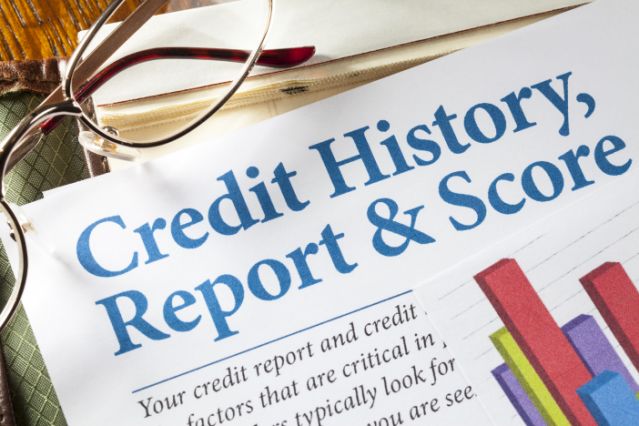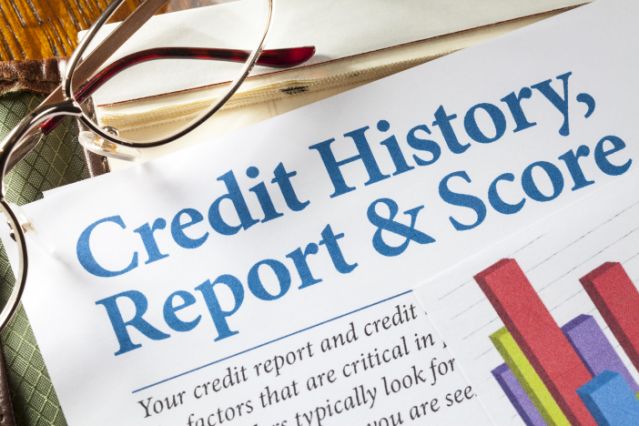Comprehensive Credit Reporting across the globe
Found that ideal investment property on the other side of the Atlantic? Thinking of packing…

Credit History Report and Score with chart and glasses on desk
Found that ideal investment property on the other side of the Atlantic? Thinking of packing up and moving Down Under to live? Got a pretty good UK credit score that you’re keen to impress a new lender in the US or Australia with? That’s great… or it would be if it was that easy. Unfortunately, the US, the UK and Australia all have different credit scoring systems, and what’s worse, it’s almost impossible to take your credit score with you to a different country.
Same-same but very different.
On the face of it, credit scores pretty much mean the same thing wherever you go. The better your credit history, the higher your score. But that’s about where the similarities between our three countries’ systems finish. Even despite the fact that all three rely heavily on the same credit reporting agencies.
Both the UK and the US use the big three: Experian, Equifax and TransUnion. In Australia, TransUnion is replaced by Illion but those two are fairly similar. Now, it would be logical to assume that Experian and Equifax look at the same data-sets wherever they are. But, like much in the world of credit, not all is that logical. Again, it comes back to local laws and regulations – for example, Australia has only just adopted comprehensive credit reporting.

Who looks at what and where?
Data collected by the UK bureaux is pretty extensive, with things such as being on the electoral roll having a positive effect on your score. The UK also seems to collect the most diverse data of the three, including repayment history on some utility accounts, phone accounts and potentially, even rent, which it appears Australia and the US do not collect. However, despite using fairly similar info, the UK maximum scores are all over the place, varying anywhere from 700 for Equifax to 999 for Experian, with a rather odd maximum of 710 for TransUnion sitting in-between the two.
In the US, the score is more regulated and uniform. There, credit reporting agencies use a FICO score (though there are even variations on this – from generic scores to more industry specific rankings). The FICO score is calculated using weighted criteria including a person’s positive and negative credit history, their total level of debt, how long they’ve had credit, new credit enquiries and the diversity of credit. When these are all tallied up and multiplied by the percentage of their weighting, the agency arrives at a number out of 850 (or 900 if it’s a generic FICO).
That said, even with this fairly standardised system, there are still variances between the different agencies based on the specifics that each of them takes into account.
As mentioned, Australia has only recently introduced comprehensive credit reporting, which means that, up until a year or so ago, most credit reports contained only negative info, such as overdue payments, defaults, credit enquiries and adverse judgements. More recently, banks and other credit providers have begun posting more positive entries, such as on-time payments, and details of accounts that have been closed. All data remains on the report for 24 months, though newer entries are likely to carry more influence than historical ones.
Who uses what, and where?
All that data on the UK file would, you’d think, give UK lenders a pretty good idea about whether to sign you up or not, based on your credit score. But once again, logic does not prevail, and for some reason, UK lenders tend to ignore ‘official’ credit scores completely. So instead, when you apply for credit in Britain, the lender will most likely use their own, completely unique system of assessment, which means that even if you have a great credit score, the lender may decide otherwise.
In the US and Australia on the other hand, probably because the systems are somewhat more uniform, lenders tend to take credit reports on board a lot more. That’s still not to say that a fine credit score will guarantee you a great deal on a mortgage or loan, as lenders will still do their own research into your creditworthiness, with Australian lenders, in particular, keen to see how much you spend each week, and on what.
Taking your credit score with you… or not
Now, back to those plans for buying overseas. So you’ve just spent years staying on top of your bills and accounts, making sure your credit cards are paid on time and generally staying in control of your debts, and finally you’ve earned the kind of credit score you’d happily boast to your parents about. And that’s fantastic… if you don’t intend buying overseas.
You see, even though the main credit reporting agencies have the same names, they don’t have the same systems, and worse, they don’t accept even their own scores if they’re calculated somewhere else. As Equifax UK says, “Even if you’ve got a very healthy score and report in your home country because of careful borrowing and paying back any loans you might have, your credit score and report can’t transfer across – and this means that you’ll have to start from scratch.”
What’s worse, there is a possibility that even though your great score can’t come with you, your debts can. Seems unfair, but that’s banking.
Building a credit report from scratch again
If life was a game of snakes and ladders, moving overseas is like landing on that viper’s head just one square away from the finish – and of course, it’s always the one that takes you back to the start. In the real world, moving overseas means building a good credit report all over again.
The best ways to re-establish and improve your credit report will of course take time. As you probably know, it includes making sure all your credit card repayments are on time, opening a local bank account, being careful about the credit you apply for since applications that are turned down can appear as negatives on your report, sign up to utilities in your own name and make sure they’re paid on time, and keep an eye on your credit score so that you can swiftly query any entries that are unexplained or wrong – human errors and identity theft are not uncommon.
But if you keep your eye on the end goal, and maintain the discipline that got you to the higher echelons of credit scores at home, you’ll see your ranking climb back to the levels you’re used to, putting you within striking distance of a new place overseas of your own. And that’s something to write home about.





